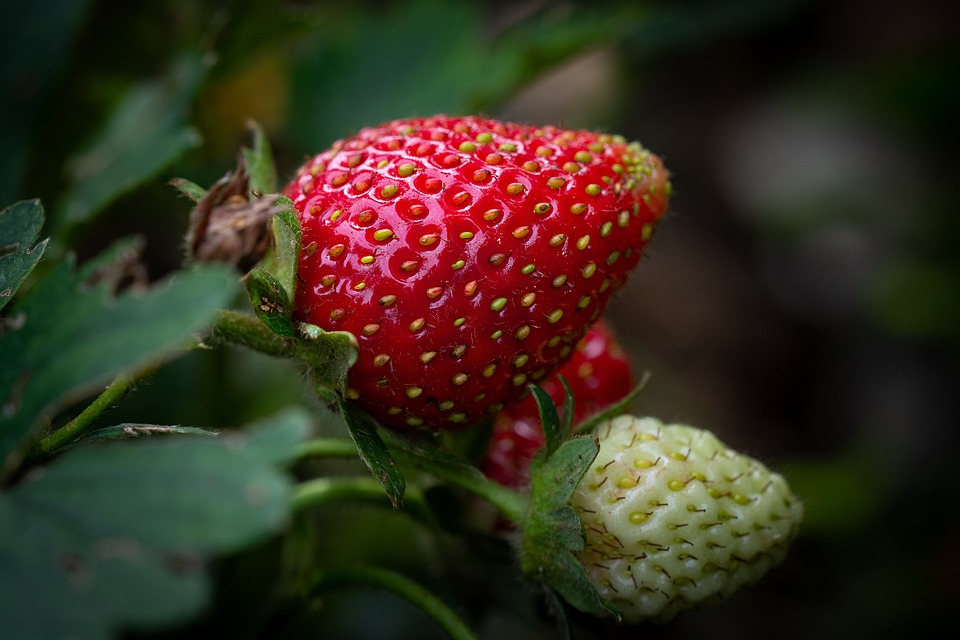Introduction
Starting your own kitchen garden can be a rewarding and satisfying experience. Whether you have a spacious backyard or a small balcony, growing your own edible plants allows you to enjoy fresh, healthy produce right at your doorstep.
However, if you’re new to edible gardening, it can be overwhelming. Fear not! In this article, we will provide you with essential tips to kickstart your kitchen garden journey.
Choose the Right Location
The first step in starting a kitchen garden is selecting the right location. Most edible plants require at least six hours of sunlight a day, so choose a spot that offers enough sunlight exposure. Additionally, consider the proximity to a water source for easy irrigation. If space is limited, don’t worry! You can opt for container gardening or vertical gardening to make the most of your available space.
Prepare the Soil
A healthy soil is essential for the success of your kitchen garden. Before planting, assess the quality of your soil. Edible plants thrive in well-draining soil rich in organic matter. If your soil is heavy or clayey, consider adding compost or organic matter to improve its structure and fertility. Regularly adding compost or mulch to your garden beds will help retain moisture and provide essential nutrients to your plants.
Choose the Right Plants
When selecting which plants to grow in your kitchen garden, consider your preferences, available space, and climate. Some easy-to-grow edible plants for beginners include herbs like basil, mint, and parsley, as well as salad greens like lettuce and spinach. You can also choose to grow vegetables such as tomatoes, peppers, and cucumbers. Research which plants suit your climate and the time of year you plan to grow them in.
Provide Adequate Watering
Watering your plants correctly is crucial to their growth and productivity. Most edible plants require consistent moisture but not overwatering. Avoid watering during the hottest parts of the day to minimize evaporation. Instead, water deeply in the morning or evening to ensure the roots receive adequate hydration. Consider using a drip irrigation system or a soaker hose to deliver water directly to the plants’ roots, preventing water wastage.
Practice Good Pest Management
Protecting your kitchen garden from pests is essential to avoid potential damage to your plants. Implementing preventative measures like companion planting, using row covers, or introducing beneficial insects can reduce pest populations naturally. Regularly inspect your plants for any signs of infestation or disease, and promptly address any issues to prevent further damage. Organic pest control methods, such as homemade insecticidal sprays or neem oil, are safe alternatives to chemical pesticides.
Maintain Regular Care and Harvest
Maintaining regular care of your kitchen garden is vital for its success. This includes regular weeding to prevent competition for nutrients, pruning or staking plants for better support, and providing regular fertilization if necessary. Harvest your plants regularly to encourage continued production. Most edible plants taste best when harvested young and tender. Many plants, like herbs and lettuce, can be harvested continuously throughout the growing season.
FAQs
1. Are certain plants easier to grow for beginners?
Yes, some plants are easier to grow for beginners. Herbs like basil, mint, and parsley are excellent choices, as well as salad greens like lettuce and spinach. These plants typically have fewer pest issues and are more forgiving to beginner gardeners.
2. Can I start a kitchen garden without a backyard?
Absolutely! If you don’t have a backyard, you can still start a kitchen garden. Consider container gardening, where you can grow plants in pots or hanging baskets on a balcony or patio. Vertical gardening is another option, utilizing walls or trellises to grow plants vertically and save space.
3. How can I tell if my plants are being overwatered or underwatered?
Overwatered plants often have yellowing leaves, water-soaked roots, and a damp or musty smell. Underwatered plants may have wilted or drooping leaves, dry soil, and brittle stems. Regularly check the moisture level in the soil by sticking your finger or a moisture meter into the soil. Water when the top inch of soil feels dry.
4. Should I use chemical pesticides in my kitchen garden?
It’s best to avoid chemical pesticides in your kitchen garden. They can harm beneficial insects, soil health, and potentially contaminate your produce. Opt for organic pest control methods, including companion planting, biological controls, and organic insecticidal sprays.
5. How often should I fertilize my plants?
The frequency of fertilization depends on the specific plants you are growing. Some plants, like tomatoes or peppers, benefit from regular fertilization throughout the growing season. Others, like herbs or lettuce, may not require additional fertilization if the soil is rich in organic matter. Read up on the specific needs of your chosen plants and adjust accordingly.




